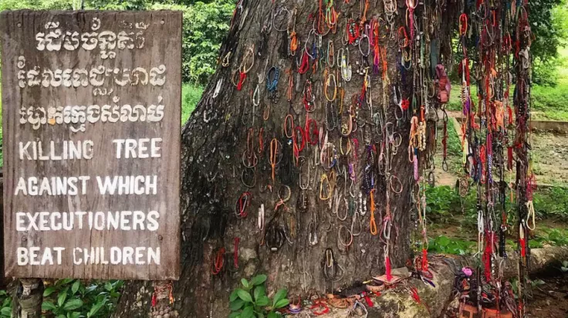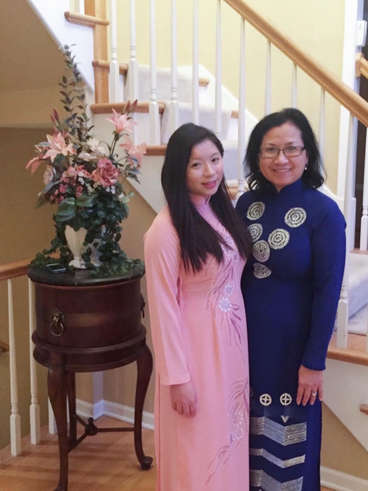Recognizing the diversity of experiences members of our college community and their families have faced is part of understanding who they are. Stories like the ones shared today and throughout the rest of Asian/Pacific American Heritage Month are meant to educate and inspire in a way that creates an understanding of the challenges they and their families have faced. Today’s message features the stories of a couple students and the adversities their families faced.
Nathan Uk
The Cambodian Genocide at the hands of the Khmer Rouge resulted in the deaths of 1.5-3 million Cambodians. It’s unbelievable that this horrific loss of life led to the eventual immigration of my mother and father from their tropical home country to the wintry state of Minnesota.

After the Khmer Rouge seized power in Cambodia, they forced millions of their people to relocate to labor camps. It was at one of these camps where my dad at the age of 18 was forced to become the head of his family after my grandfather was executed for disobedience. In contrast to his larger stature now, my dad and his family were malnourished and starving due to the conditions of these labor camps. The continued executions, physical punishment, and poor quality of living led to the deaths of countless Cambodians including much of my father’s family and friends. Warring between a multitude of powers including Cambodian communists, China, Vietnam, and the United States featured Southeast Asia as the battleground for the bloodiest war in modern times. This warring kept my dad and his family stuck in these labor camps until the Communist Cambodian occupation of the country had ceased. Afterward, they were able to escape to Thailand and later to the United States as refugees.
My family faced continued adversity upon arriving in the United States. My dad and much of his family did not speak English. However, this did not stop them from accomplishing their dreams and giving me the privileged life that I have today. While going to college for his associate degree at night, my dad worked 70-80-hour work weeks just to make ends meet. He describes having to beg for minimum-wage jobs due to his lack of education and was often forced to take lower compensation. Throughout his career, he continued to face blatant racism and inevitably people even incorrectly attributed his eventual success to his refugee status and the “hand-outs” he received. Nowadays, he lounges around and enjoys his life to the fullest. It’s hard to believe what my family has been through and where they come from. I believe that my family and millions of other individuals of the AAPI population have demonstrated the tremendous amount of adversity we have all had to overcome.
Julianne Tieu
Growing up in the United States with both parents being Vietnamese, I have wandered through life knowing that I am a unique mix of cultures. I am American and Vietnamese and I think it is important to understand that it is possible to have two different countries as part of your identity. Whether you don’t speak the language of one country as well as the other or have only visited one and grew up in the other country for most of your life, you can feel connected to the roots of your cultural experience. The journey to how you have become who you are is so much more than the labels and categories often used to identify you.

I am the child of courageous and steadfast parents who escaped southern Vietnam as refugees in their early twenties after the Vietnam War. They forgoed [sic] their homeland to find a better one for their family. They nearly lost one of my older sisters when hiding at the bottom of a boat as they made their way to a refugee camp in Thailand. They had to be separated for over a year when my father had to establish housing and employment in the United States before my mother and sisters could join him. Hardship didn't end when they arrived in this new country either. My parents navigated through a foreign environment without understanding the major language and lacking the strong community they once knew. They worked several jobs seven days a week with little to no breaks to support our family. They couldn’t see their parents, my grandparents, for years before they could sponsor them to come over. They had to build new lives from nothing whilst enduring senseless discrimination. Their tenacity to survive and thrive allowed me to be. I am here today because they persevered. My accomplishments are a testament to the sacrifices they made in their youth. I am forever grateful for the strength and opportunities they passed onto me. I have faced prejudice and learned to use my voice to fight against it because of them. I have blossomed into a skilled, compassionate person because of them. I have a full life ahead of me because of them.
They are a part of the foundation of who I am and I cannot be more proud.
While each person’s journey is different, it’s important to remain open to having unbiased and inclusive conversations. Thank you to Nathan and Julieanne for sharing these stories. Being an inclusive community starts with getting to know each other and what we and our families have faced. Think about sharing your story with those around you and invite them to share theirs with you.